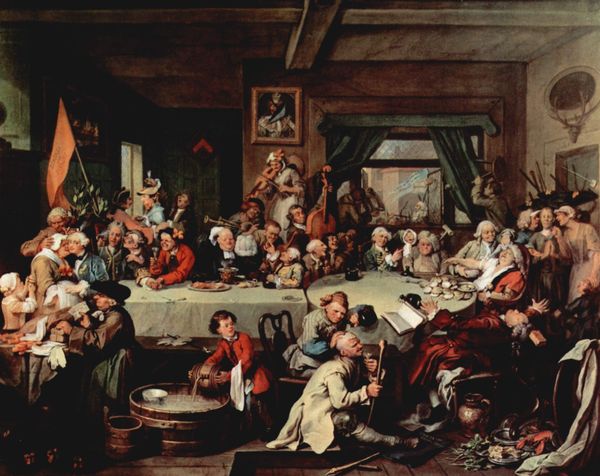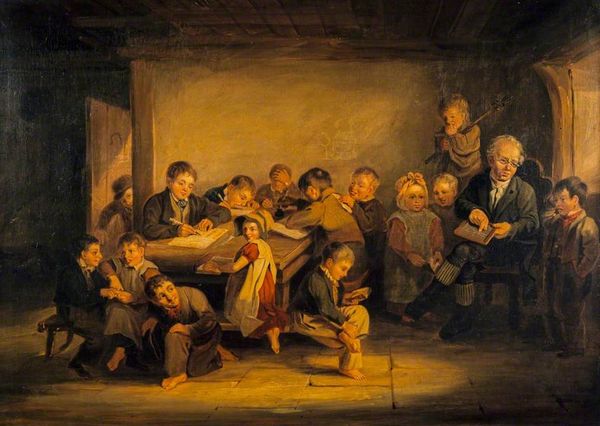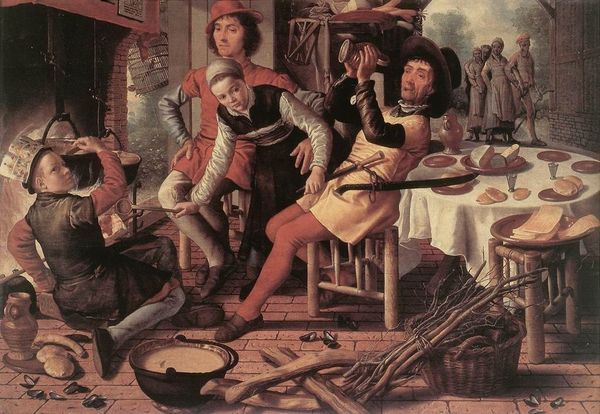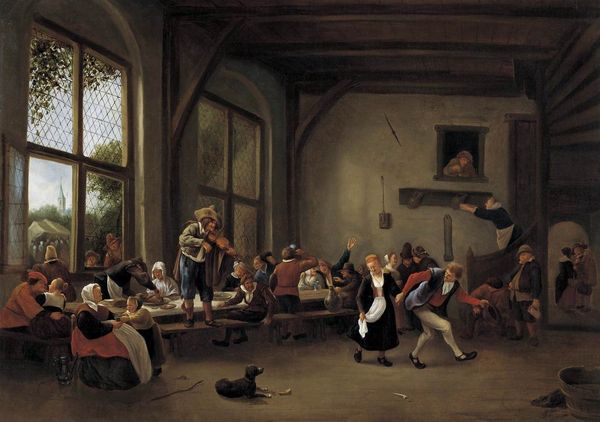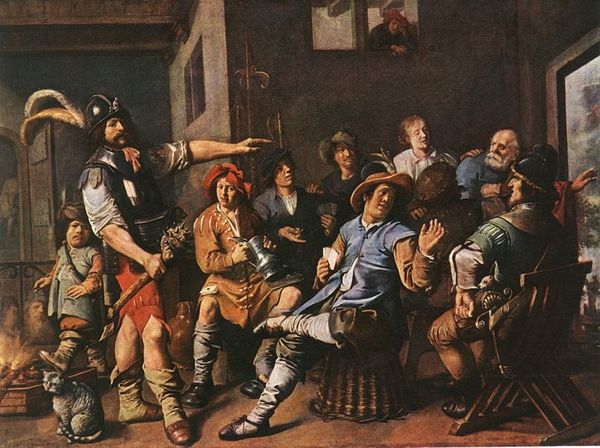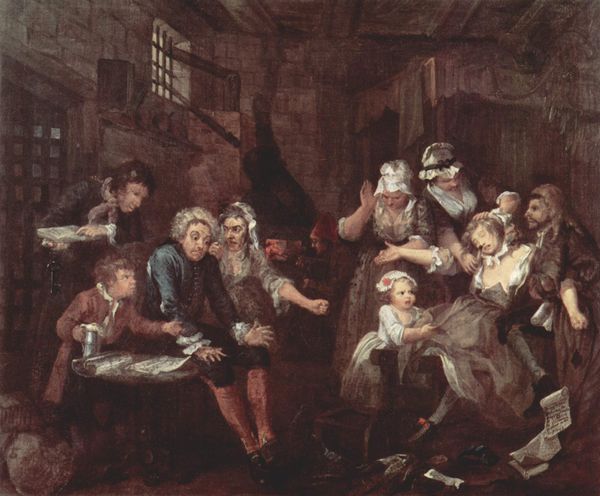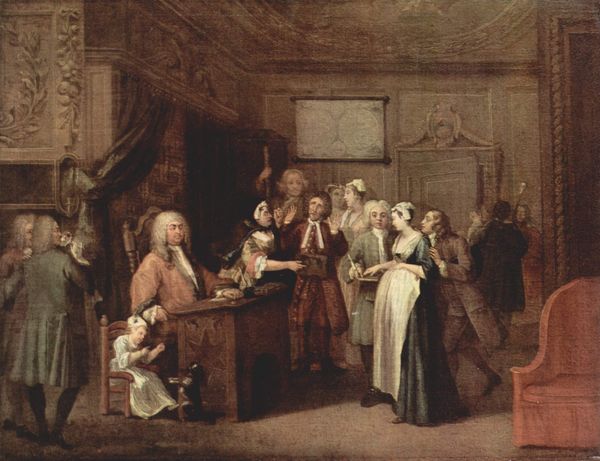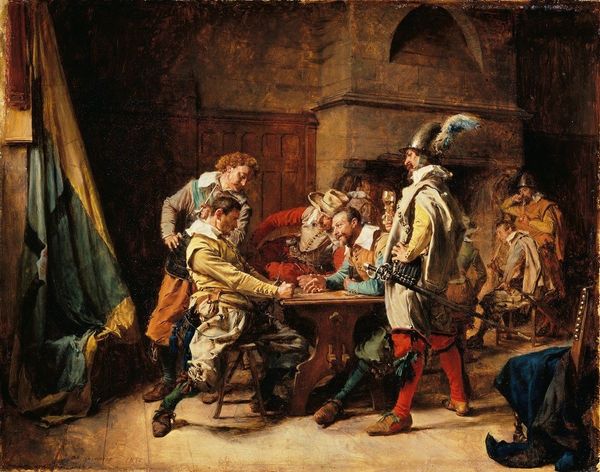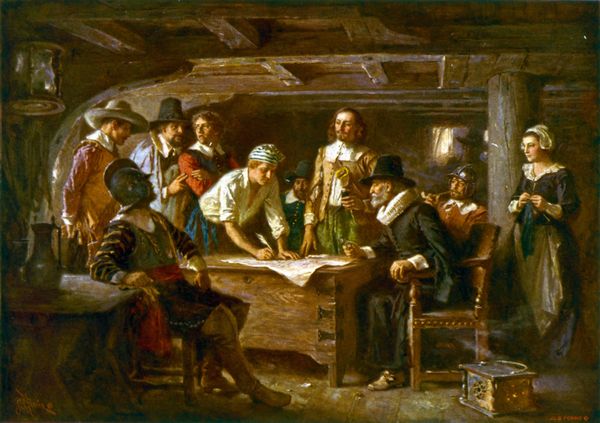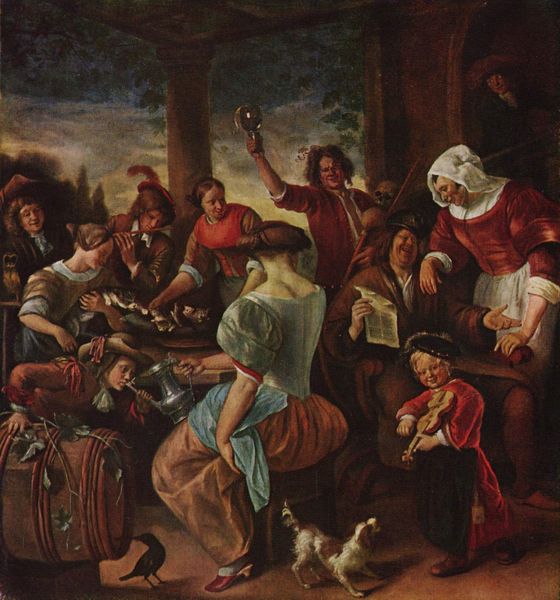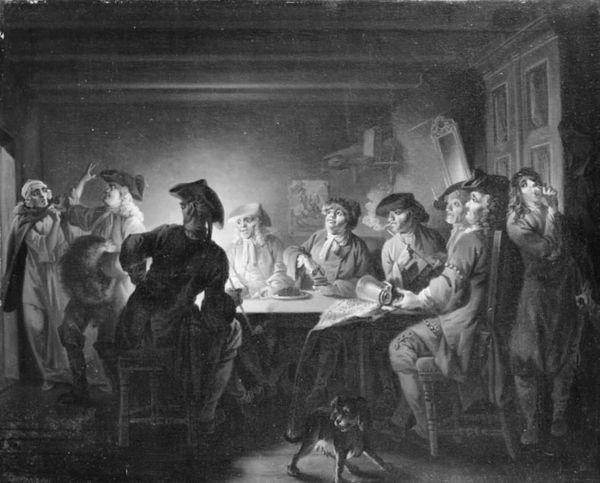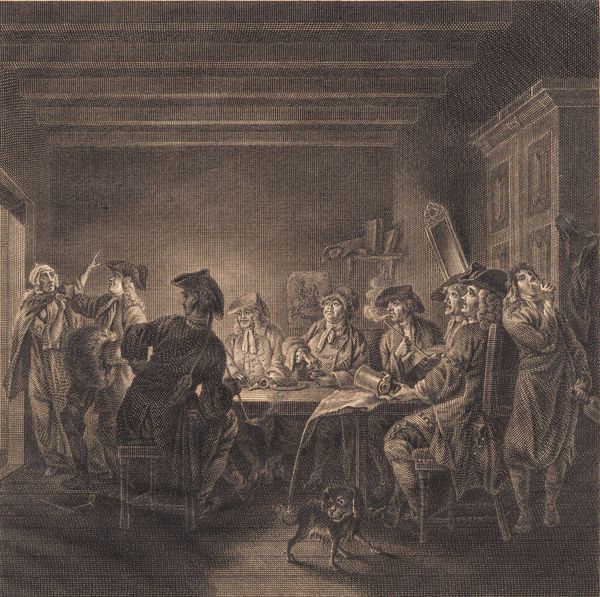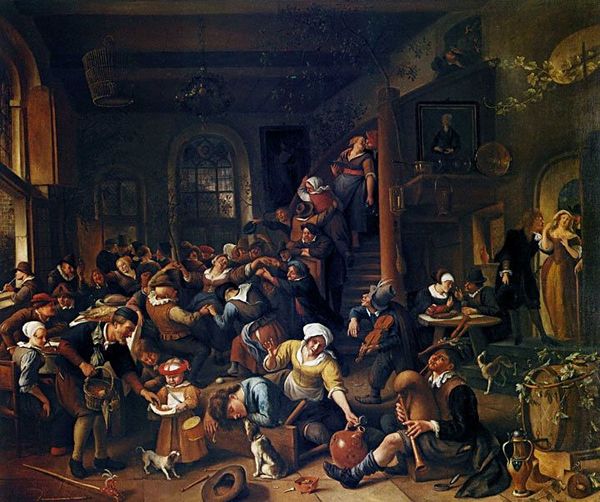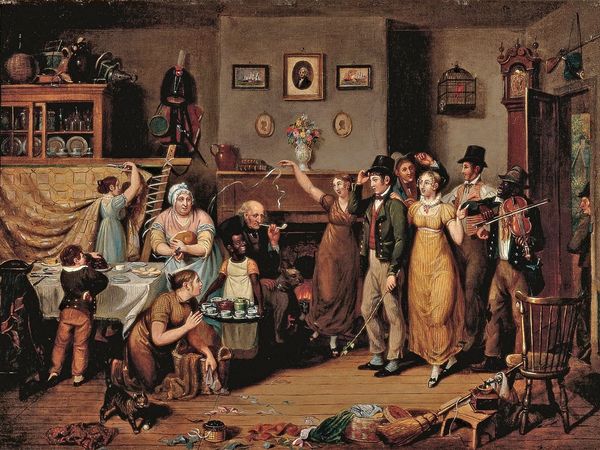
painting, oil-paint
#
narrative-art
#
baroque
#
painting
#
oil-paint
#
oil painting
#
group-portraits
#
genre-painting
#
history-painting
#
academic-art
Dimensions: 62.5 x 75 cm
Copyright: Public domain
Curator: Here we see William Hogarth's oil painting "Rake's Progress: The Gaming House," created around 1735. Immediately striking, isn't it? Editor: Utter chaos. The frenzied poses and cramped composition definitely conjure a sense of spiraling, self-destructive behavior. What's drawing my eye most is the abundance of gesture, everyone reaching and pointing, but towards what? Curator: Precisely! This scene is a slice of Georgian London life, portraying the protagonist, Tom Rakewell, descending further into moral and financial ruin through gambling. It's important to remember Hogarth aimed his art as social commentary, speaking to emergent class tensions of his era. Editor: Tell me, what are some recurring symbols to look for within the image? Curator: Certainly. Notice how all the action converges to the center? You will see the prostrate figure in the blue coat—that is Tom after the game! His gesture suggests desperation. Editor: And consider all of the visual echoes of wealth: fine clothes and a sea of powdered wigs. Yet, they're engaged in what Hogarth sees as a morally corrupt activity. Look at that overturned chair in the foreground and broken furniture! They all signal collapse. What do you make of the man holding the lantern back behind? Curator: I believe he is some sort of guard, and more to the point, I think that we can agree, Hogarth captures the volatile energy and emotional turmoil of the scene beautifully, laying bare the follies of the wealthy through vivid symbolism and satirical detail. We understand so much about societal expectation as the basis for judgement in this image. Editor: It's definitely a potent image that stays with you. Hogarth used a masterful visual language that really opens up historical social critique in really interesting ways, as you put it. Curator: I completely agree, its chaos resonates today. I do wonder, as you said, with whose collapse he sympathizes with, or hopes to educate most, and to what end!
Comments
No comments
Be the first to comment and join the conversation on the ultimate creative platform.
